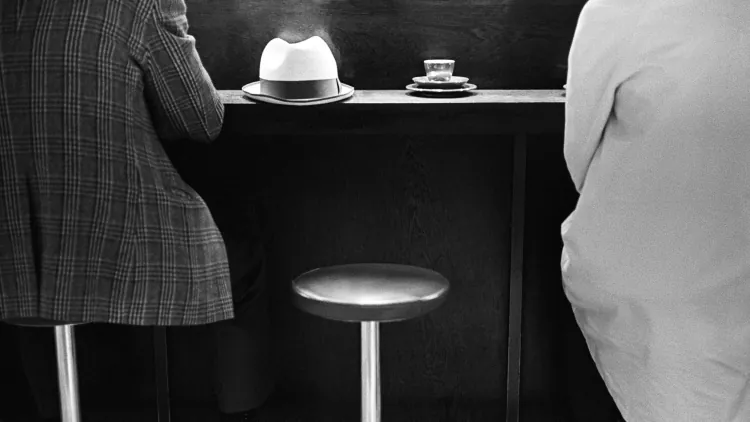What Restaurant Behavior Says About a Person
Dining out can be an opportunity to see a human being at their hungriest, their showiest, or their most human.

This is an edition of The Wonder Reader, a newsletter in which our editors recommend a set of stories to spark your curiosity and fill you with delight. Sign up here to get it every Saturday morning.
“How you behave in a restaurant is how you behave in life.” Ever since I heard that observation from a friend years ago, I’ve wondered why it hasn’t become a more common aphorism. Dining out can be an opportunity to see a person at their hungriest, their showiest, their most human. Do they yell at wait staff? Do they tip well? And then come the questions of food-sharing and chewing etiquette.
Many of these quandaries come up in Curb Your Enthusiasm, a show with a unique focus on the drama that can unfold when people join together to eat. Restaurants are “the ideal petri dish for [Larry David’s] social experiments, which have everything to do with how people should conduct themselves in a shared world,” Mac Schwerin writes in a new essay. “Ironically, the food itself is rarely addressed.”
Today’s newsletter is a collection of Atlantic articles about dining that are less about food than about the people eating it.
On Dining Out
The Everyday Indignity of Dining Out
By Mac Schwerin
On Curb Your Enthusiasm, anything can happen when Larry David walks into a restaurant.
What Home Cooking Does That Restaurants Can’t
By Reem Kassis
When we eat, the social context matters perhaps even more than the food.
Do Yourself a Favor and Go Find a ‘Third Place’
By Allie Conti
We need physical spaces for serendipitous, productivity-free conversation.
Still Curious?
- How restaurants got so loud: Fashionable minimalism replaced plush opulence. That’s a recipe for commotion, Kate Wagner wrote in 2017.
- What you learn from eating alone: A personal pizza may seem sad, but it doesn’t have to be.
Other Diversions
- Solving a century-old byline mystery
- “I just want a normal drink.”
- Middle names reveal more than you think.
P.S.
Technology and the coronavirus pandemic have transformed the meaning of gratuity, my colleague Charlie Warzel wrote last year: “The new tipping culture is confusing at best.”
— Isabel
What's Your Reaction?




















